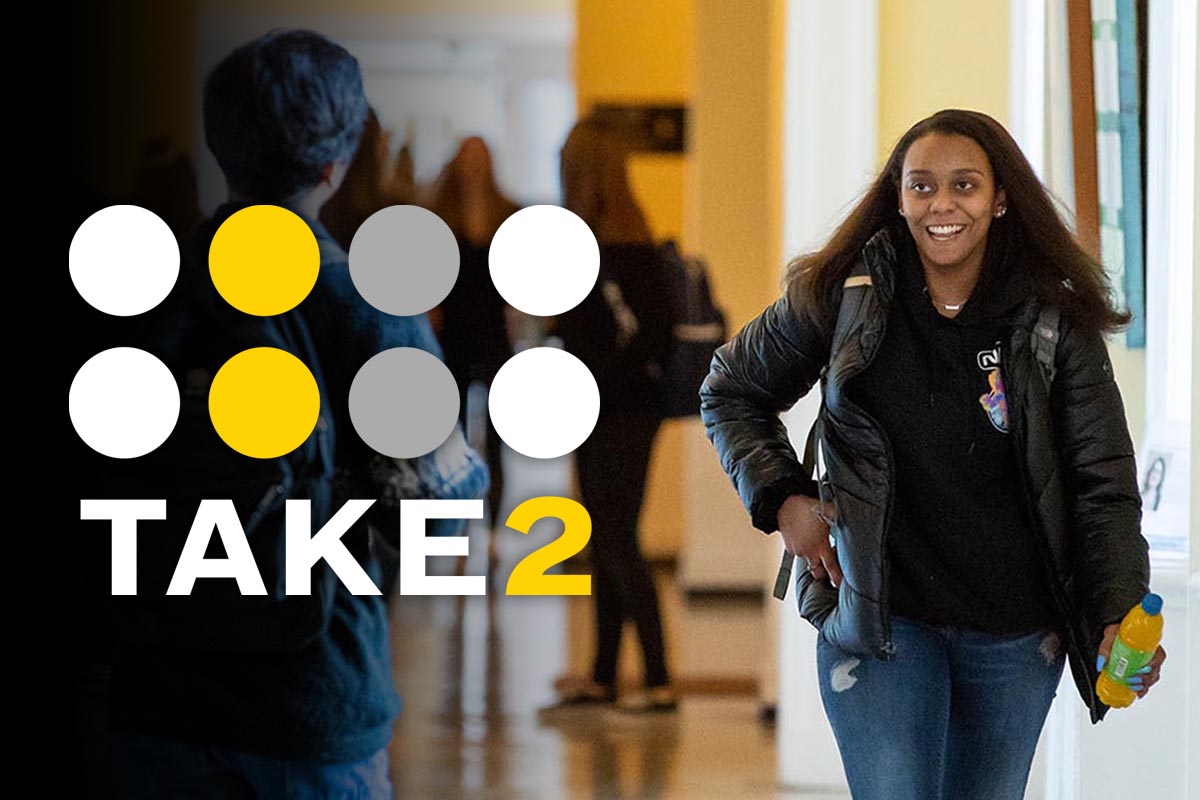Carrying the Torch
New major brings unique classes and experiences to students
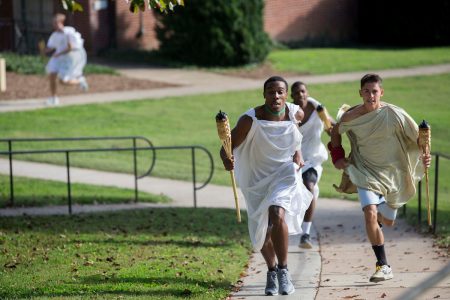
(Left) Daniel Bennett-Blake ’21 inches ahead of Bradley Strober ’18 during Randolph’s first-ever Panathenaic Torch Relay in September.
As he ran up the hill to the Maier Museum of Art at Randolph College, Cody Carpenter ’21 could hear the crowd shouting words of encouragement in Greek.
With a torch in hand and the breeze blowing his toga behind him, he eased ahead of his competitors, giving a triumphant leap as he crossed the finish line. There, the goddess Athena presented prizes to the winners of Randolph’s first-ever Panathenaic Torch Relay Race.
The event was part of the fall course, Sport and Spectacle in the Ancient World. The class combined two of Carpenter’s favorite subjects—history and sports. And because the race took place on Family Weekend, his parents were there to witness the occasion.
“It definitely was an interesting experience, and I look forward to our other project (Gladiators in the Dell) coming up in December,” Carpenter said.
The Sport and Spectacle class is taught by Susan Stevens, professor of classics and the Catherine E. and William E. Thoresen Chair in Humanities, and is designed to introduce students to ancient athletics and sports in the Greco-Roman world and explore its affinities to contemporary sport and mass entertainment.
An elective, the class offers students the chance to study world cultural heritage from an experimental archeology perspective. This was just one of the courses offered this semester as part of Randolph’s new museum and heritage studies major. The College is one of only a handful around the nation to offer such a program, which emphasizes experiential learning and is designed for a broad range of students in the arts, humanities, and social and natural sciences. Courses focus on development of fresh perspectives and practical skills, and are taught primarily by Randolph’s museum professionals and faculty.
“Immersive, hands-on experiences that connect us directly to the world around us are a guiding principle of the new museum and heritage studies major at Randolph,” Stevens said. “We think that engaging the senses is one of the best ways to learn what you love and chart your course to a fulfilling career and a full and adventurous life.”
Laura McManus, curator of education at the Maier Museum, co-taught Collections Management, another course offered in the new major. In class, students learned management and collections care principles using the College’s artwork and specimens and tools from the Natural History and Archaeology Collections.
“As someone who has worked in several museums and been in the position to interview and hire new staff, I can tell you that prior museum experience is essential for entry level jobs,” McManus said. “What sets this program apart, and what will help distinguish our students once they enter the workforce, are two things: the interdisciplinary nature of the curriculum and the major’s emphasis on practical learning.”
“Collections Management is a fully immersive class,” McManus added. “It’s already unique to have a world-class art museum on campus. To also have a notable natural history and archeology collection available as an extension of the classroom, and to be situated in an area with easy access to exceptional historical and archaeological sites enables Randolph to offer an exceptional cross-disciplinary approach to museum and heritage studies.”

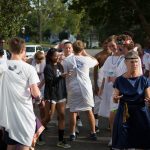
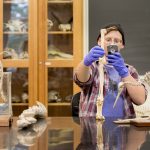
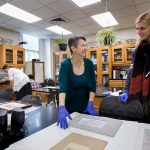
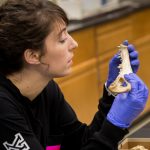
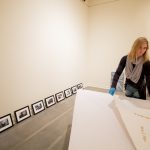
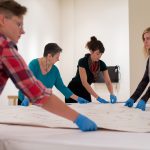 Tags: archaeology, art, conservation, Laura McManus, Maier Museum of Art at Randolph College, majors, muhs, museum and heritage studies, museum studies, Susan Stevens, torch relay, Vita Vol. 1 No. 2
Tags: archaeology, art, conservation, Laura McManus, Maier Museum of Art at Randolph College, majors, muhs, museum and heritage studies, museum studies, Susan Stevens, torch relay, Vita Vol. 1 No. 2